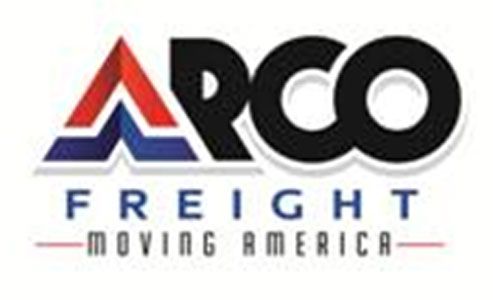How a Freight Brokerage Company Can Save Your Business Time and Money
Understanding the Role of a Freight Brokerage Company
A freight brokerage company is like a matchmaker in the world of logistics. They connect businesses that need to ship goods with transportation services that can deliver those goods. But their role goes beyond just making connections. They manage all the details of the shipping process, from coordinating pick-ups and deliveries to handling paperwork and tracking shipments.
Freight brokers have an extensive network of carriers they work with. This means they can find the right carrier for your specific shipping needs. Whether you're shipping a small package across town or a large cargo overseas, a freight broker can find the best solution for you.
But perhaps one of the most significant roles of a freight brokerage company is in problem-solving. If there's an issue during shipment, like a delay or a missed delivery, the freight broker steps in to resolve the situation. They work closely with the carrier and keep you informed, so you don't have to worry about anything.
In essence, a freight brokerage company takes the stress out of shipping. They handle the complexities of logistics, allowing you to concentrate on other important aspects of your business. In the next section, we'll discuss how this can save you a lot of time.
Saving Time with a Freight Brokerage Company
In business, time is money. The more time you can save, the more you can focus on growing your business. This is where a freight brokerage company comes into play. They take over the time-consuming task of managing your shipping needs, allowing you to use your time more effectively.
Think about all the steps involved in shipping. You have to find a reliable carrier, negotiate rates, arrange pick-up and delivery times, handle paperwork, track the shipment, and deal with any issues that arise during transport. Doing all this yourself can take up a lot of your precious time.
But when you work with a freight broker, they handle all these tasks for you. They have the expertise and resources to manage the shipping process efficiently. This means you can spend less time worrying about logistics and more time focusing on your core business activities.
In addition, freight brokers use advanced technology to streamline the shipping process. They can quickly find the best carriers and routes, track shipments in real-time, and resolve issues promptly. This not only saves you time but also ensures your goods are delivered on time.
In the next section, we'll examine how a freight brokerage company can also help you save money.
Saving Money with a Freight Brokerage Company
One of the key benefits of using a freight brokerage company is the potential for cost savings. They have a broad network of carriers, which means they can negotiate competitive rates on your behalf. This can result in significant savings compared to if you were to arrange shipping yourself.
A freight broker's extensive knowledge of the logistics industry also comes into play here. They understand the ins and outs of shipping costs and can help you avoid unnecessary expenses. For instance, they can advise you on the most cost-effective packaging methods or suggest cheaper routes.
Additionally, freight brokers can save you money by reducing the risk of costly mistakes. Errors in paperwork or shipping procedures can lead to delays, lost goods, or even fines. A freight broker ensures everything is done correctly, minimizing the risk of such costly errors.
Finally, using a freight brokerage company can also save you indirect costs. By freeing up your time, they allow you to focus on other areas of your business that can generate revenue. In this way, they not only save you money but also help you make more money.
In the following section, we'll explore how to choose the right freight brokerage company for your business.
Choosing the Right Freight Brokerage Company
Choosing the right freight brokerage company is crucial for your business. The right broker can streamline your shipping process, save you money, and provide peace of mind. Here are some factors to consider when making your choice.
First, look for a broker with a wide network of carriers. This ensures they can find the best shipping solution for your specific needs. Also, a larger network usually means more competitive rates.
Second, consider the broker's experience and reputation in the industry. An experienced broker will have the knowledge and skills to handle complex shipping situations. Check online reviews and ask for references to gauge their reputation.
Third, inquire about their customer service. A good freight broker should be responsive and communicative. They should keep you updated on your shipments and be available to answer any questions or resolve issues.
Lastly, consider their use of technology. Modern freight brokers use advanced software to track shipments, manage paperwork, and streamline communication. This can make your shipping process more efficient and transparent.
In conclusion, choosing the right freight brokerage company can make a significant difference in your logistics operations. Take the time to do your research and find a broker that fits your needs.
The Role of Technology in Freight Brokerage
In the modern world, technology plays a vital role in every industry, including freight brokerage. Advanced software and tools have transformed the way freight brokers operate, making their services more efficient and valuable.
One key area where technology has made a significant impact is in shipment tracking. Real-time tracking systems allow freight brokers to monitor shipments at every stage of the journey. This provides transparency and peace of mind to businesses, as they always know the status and location of their goods.
Technology also streamlines communication between all parties involved in the shipping process. Instant messaging and automated notifications keep everyone updated on shipment progress and any potential issues.
Moreover, digital platforms make it easier for freight brokers to manage paperwork and documentation. They can quickly access and share necessary documents, reducing delays and potential errors.
Lastly, technology aids in route optimization. Sophisticated algorithms can determine the most efficient routes, taking into account factors like traffic, weather conditions, and delivery deadlines. This not only saves time but also reduces fuel consumption, making shipping more eco-friendly.
In a nutshell, technology enhances the efficiency, transparency, and sustainability of freight brokerage services. As a business owner, partnering with a tech-savvy freight broker can bring considerable benefits to your logistics operations. In the next section, we will look at some case studies of businesses that have benefited from using a freight brokerage company.
Case Studies: The Impact of Freight Brokerage on Businesses
In this section, we will explore real-world examples of businesses that have experienced significant benefits from using a freight brokerage company.
Case Study 1: Small E-commerce Business
A small e-commerce business was struggling with high shipping costs and delivery delays. After partnering with a freight broker, they were able to access more competitive rates due to the broker's extensive network of carriers. The broker also optimized their shipping routes and procedures, reducing delivery times. As a result, the business saw a significant decrease in shipping costs and an improvement in customer satisfaction.
Case Study 2: Large Manufacturing Company
A large manufacturing company was spending too much time managing their complex shipping needs. They decided to work with a freight broker, who took over the logistics tasks. This freed up the company's resources, allowing them to focus more on their core operations. The broker also introduced advanced tracking technology, providing transparency and peace of mind. The company reported increased operational efficiency and cost savings.
These case studies highlight the potential benefits of using a freight brokerage company, regardless of the size or nature of your business. In the final section, we will summarize the key points discussed in this article.
Conclusion
In sum, the importance of a reliable and efficient freight brokerage service provider cannot be overstated in today's fast-paced business world. Whether you're a small-scale e-commerce platform or a large manufacturing firm, leveraging the services of a seasoned freight broker like Arco Freight can translate into significant cost savings, operational efficiency, and improved customer satisfaction.
At Arco Freight, we understand that every business has unique shipping requirements. That's why we offer customized solutions tailored to your specific needs. Our wide network of carriers, advanced technology, and commitment to excellent customer service make us a trusted partner for all your shipping needs.
Ready to take your logistics operations to the next level? Contact us at
208-324-4706 today. Let
Arco Freight handle your shipping tasks professionally and efficiently, so you can focus more on what you do best - running your business.










